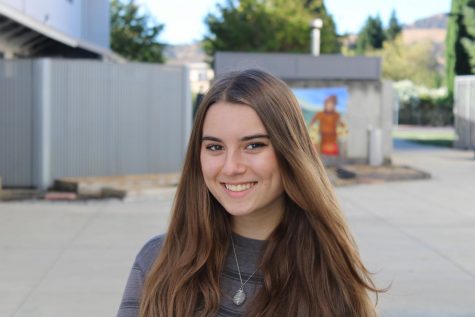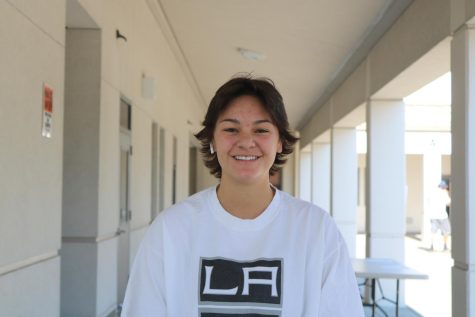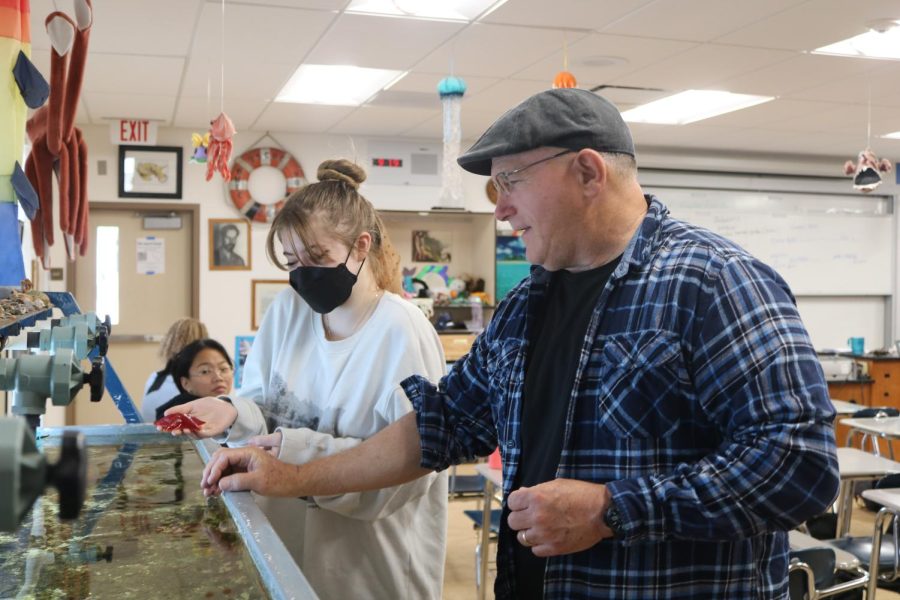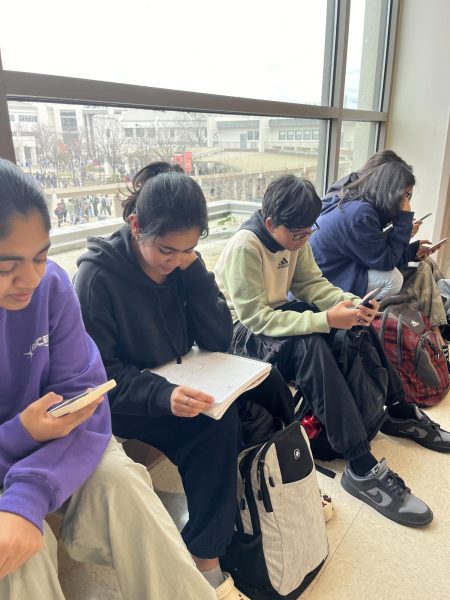Students study climate in eco classes
AP Environmental Science, marine biology among courses that address climate issues
Marine Biology teacher Douglas Mason shows junior Kit Town a starfish from the aquarium tank in his classroom. Mason’s class is one of several on campus that addresses the issue of climate change in the curriculum.
The hot button issue of climate change is being taught in schools now more than ever before.
Being one of the most talked-about topics, one which many consider to be the most significant issue of this generation, it has become expected of many classes to teach students about the topic.
The subject of climate change is introduced in Cal High courses such as marine biology, AP Environmental Science, biology, and even chemistry. Since it has become more of an important and commonly discussed topic, it has been frequently discussed in a wider variety of classes.
“It’s taken a long time for people to come to realize, you know, how important this topic is, and how severe the consequences are,” marine biology teacher Douglas Mason said.
Mason covers topics such as overfishing, population sizes of different organisms and how plankton are affected by the change in their environment.
“We were focusing on all the pollution and overfishing and everything that we were doing to deplete our oceans’ sources,” senior Amarinah Correa said.
Since plankton play such an important part in global warming, it is addressed often in marine biology. Plankton are one of the most important organisms on the planet by helping keep ecosystems stable by regulating carbon dioxide amounts in the atmosphere, Mason said.
The problem of overfishing is also addressed in the class.
“Overfishing makes marine fisheries production more vulnerable to ocean warming by compromising the resilience of many marine species to climate change, and continued warming will hinder efforts to rebuild overfished populations,” according to a peer-reviewed article by Ibrahim Issifu from the University of British Columbia.
Another class that is well known for covering the issues of climate change and the environment is AP Environmental Science (APES). The class is focused on teaching students more about the environment around them, including the issue of climate change, while understanding small actions that can be taken to help.
“I think it’s important because we’re still at a point where we can do something about it,” APES teacher Sarah Gipson said. “Even though it may seem small, doing personal things like turning out the lights when you’re not in the room and eating less meat, every little bit helps.”
Over the past 20 years, addressing the subject of climate change has slowly become more and more accepted and expected of school districts.
”I don’t remember covering [the topic of climate change when I was in high school], but I also don’t know that it was as much of a big topic like it is now,” Gipson said.
Other teachers share a similar sentiment about the past.
“I think when I first started teaching here, there were a lot more, you know, climate change deniers,” Mason said.
Regarding differing views on the relevance of climate change, little to no backlash has been reported from either of the classes.
“There’s some differing views on maybe when we talk about solutions to issues and stuff like that, but not aspects that everyone agrees that like, yes, climate change is a real thing,” Correa said. “We’re united on that front.”

Junior Alexia Broughton is a reporter at Cal High. She is in her first year of newspaper and hopes to continue with this class for the rest of highschool....

Senior Lili Loney is the Photo Editor for The Californian. She has been in newspaper since junior year, starting as a photographer and becoming the Photo...





